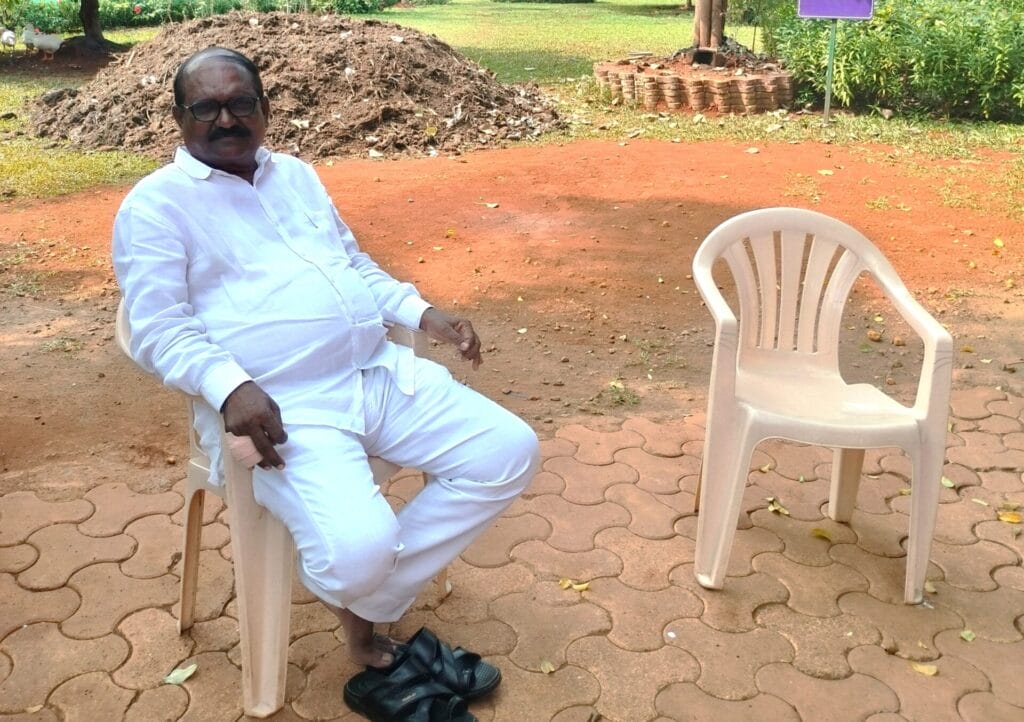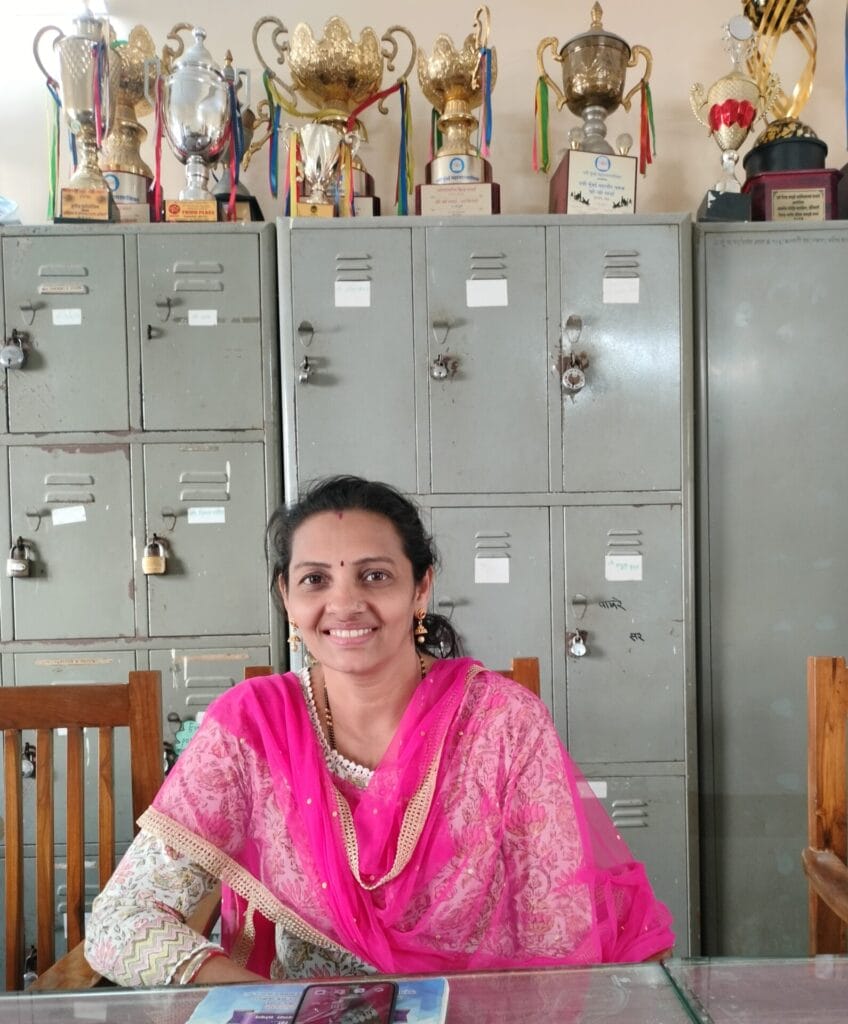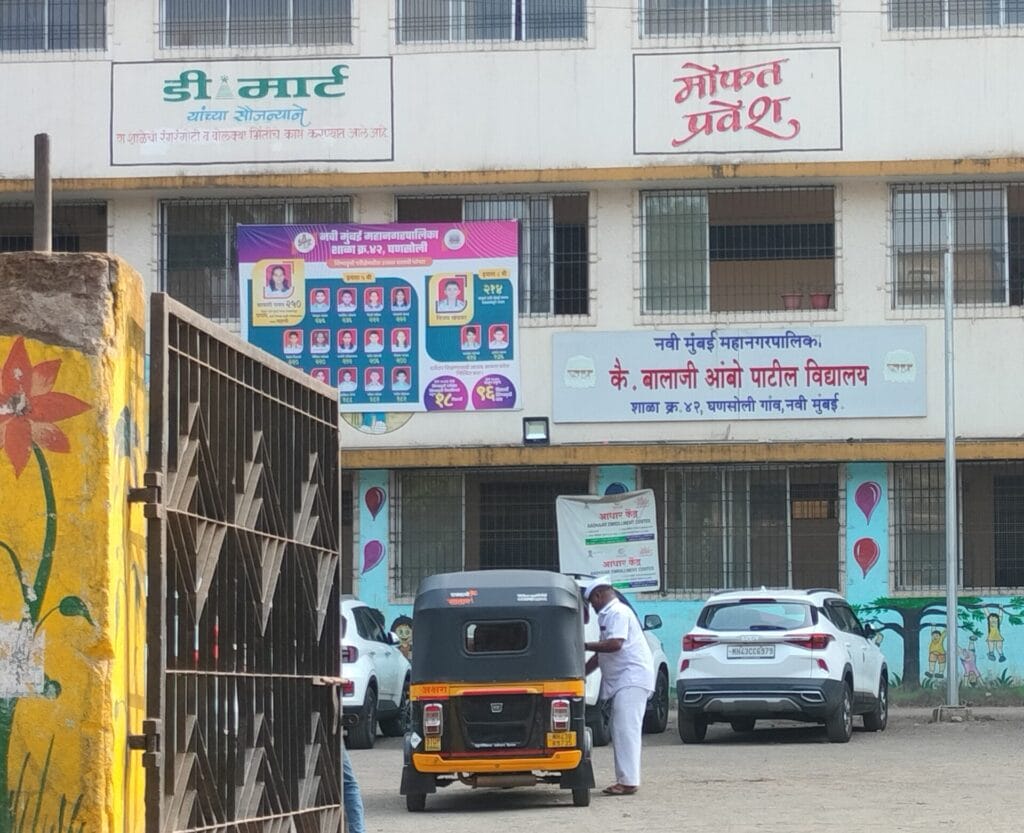“It is such a tragedy that on the occasion of the death anniversary of Dr. Babasaheb Ambedkar, who spent his entire life educating people, making them aware, in getting them their rights, you have taken a step towards privatisation of education,” says Sudhakar Sonavane, former mayor of Navi Mumbai.
He is referring to Maharashtra government’s “Adopt A School” scheme, which educationists and parents believe is an invitation in disguise for private players to take over government schools, where the poorest in the state study. It was launched on December 5th in the presence of chief minister Eknath Shinde and school education minister Deepak Kesarkar.
What is ‘Adopt A School’ scheme?
The central government is enlisting the help of public and private sector organisations as well as public participation under the Vidyanjali programme to fulfil the goals set under NEP 2020 – that education should reach every rung of society. The Government of Maharashtra has decided to run the “Adopt A School” scheme in conjunction with the goals of NEP.

According to a government regulation (GR) released by the School Education and Sports Department on September 18th, schools run by the state government, municipalities and local self-government bodies can be ‘adopted’ by various donors. These can be individuals with an IT department clearance, NGOs registered with the Charity Commissioner and corporate offices with a SEBI registered CSR certificate. Any of the above entities can adopt a school by donating Rs 2 crore or Rs 5 crore, for a period of five or 10 years respectively, for schools falling under class A and B municipal corporations. During this period the donor can get the school named after a person of their choice.
These figures have been calibrated on a sliding scale as follows:
| Amount to be provided for services and resources for Schools in class ‘A’ and ‘B’ municipal councils | Time period |
| Rs. 5 crore | 10 years |
| Rs. 2 crore | 5 years |
| Amount to be provided for services and resources for Schools in class ‘C’ municipal councils | Time period |
| Rs. 2 crore | 10 years |
| Rs. 1 crore | 5 years |
| Amount to be provided for services and resources for Schools in class ‘D’ municipal councils | Time period |
| Rs. 1 crore | 10 years |
| Rs. 50 lakhs | 5 years. |
Protests led by parents
The decision met with a wave of protests in various parts of the state of which the most vehement, and also the most innovative came from government run schools in Navi Mumbai, which falls under class ‘C’ council. The agitation here was led by the parents.
They did not want to inconvenience people with morchas but wanted to convey a strong message to the government. The message said if the government finds itself unable to run schools, they should hand them over to parents who will do the job, but not to others. So, they chose to stage the protest by running NMMC schools with the support of the teachers’ union on October 22nd.
When the parents got to know about the GR, they insisted on their schools telling them what it entailed. “Our main worry is whether our school will survive. We don’t want the “Adopt A School” scheme. Let things continue the way they have been going on, ” says Nanda Karbate, who shifted both her children from a private school to a municipal school during the pandemic.
The parents, being the most affected of the stakeholders, took the lead in the agitation by organising meetings, mobilising parents from other NMMC schools, putting up banners, and live streaming the proceedings.
The GR has provisions to ensure effective utilisation of funds. For example, the donations are to be made in kind or services. The funds will be used for the repair, maintenance and cleanliness of school buildings, modernising the schools, and procuring sports equipment.
So, why are parents and teachers opposing a scheme, which promises to help the poorest of students?
Is privatisation the ulterior motive?
If the past is anything to go by, the spectre of privatisation looms large over these schools. Sudhakar recalls, “If we take the example of Navi Mumbai, it is designed by CIDCO. While planning, to ensure a certain number of schools in an area, plots of land were given away free of cost to education magnates. After forty years they have sold these plots to be converted into CBSE, ICSE schools run by the corporate sector. And the poor people in that area have no access to affordable schools.”
According to a news report in Hindustan Times, the number of private, unaided schools in the state has gone up by a whopping 111% between the academic years 2013-14 to 2017-18. These figures are based on the Economic Survey Of Maharashtra according to which, out of the 1,06,527 schools in the state, 10,676 were private schools in 2013-14, while the number jumped to 22,477 in 2017-18.
Sudhakar’s conviction that the scheme is a backdoor entry towards privatisation is shared by teachers and parents alike. “This is the first step (towards privatisation), although it seems like development,” says Kamlesh Ingle, a teacher at the Rajashri Chhatrapati Shahu Maharaj Vidyalaya, a municipal school in Rabale.
His colleague, Deepali Padwal, both of whose children studied at a Marathi medium school in Navi Mumbai, echoes his concerns, “We are all against this policy of ‘Adopt-A-School’. When the GR was sent we all discussed it and thought that the concerns regarding this should be voiced.”

Their reasons are clear. According to the GR, the donation will be used for infrastructural purposes. But the needs of all schools may not be the same. Kamlesh elaborates, “Now take the example of our municipality. They have already built good school buildings, they have developed infrastructure, what more development can be done?”
On the other hand, schools may not have specialised teachers to teach subjects like art, craft. music, sports. They may have laboratories and libraries, but what if there are no librarians or lab technicians? Kamlesh also cites the lack of a clerical department, requiring teachers to spend a lot of precious work hours in non-teaching work.
The scheme also allows donors to add the name of a person of their choice to the school name without changing the original for the tenure of adoption. “If the school is named after a great person, would it be okay to prefix it with the name of a company? Is it not an insult to that person?” questions Kamlesh. He also points out that CSR activities are already being carried out in many schools, wondering how this step of adoption will help more.

They also worry about another possibility with more serious impact. The government run schools are located on prime plots of land. The fear is that they will be used to build private unaided schools, after a certain time period has passed leaving no access to the children of the poor. Today, the children from poor backgrounds attend municipal schools, which have no fee. Additionally, the schools provide uniforms, shoes, books, and mid-day meals free of cost.
Read more: Debate over cluster schools as Education Department pushes the policy
Public education: Government’s responsibility
Most of the teachers and parents emphasise that the government cannot shirk their responsibility by putting up schools for adoption. In fact, the common thread in the conversations with different stakeholders is that they have full faith in the government and their ability to run schools.
Aware of the difficulties lying ahead, Kamlesh says, “It’s not going to be easy. It will require agitation.” Despite the recent roll out of the scheme, they are resolute to fight this. Nanda asserts, “If there is a need to protest again, all of us parents will be there for it.”
School education minister Deepak Kesarkar has reassured that this policy will not lead to privatisation of schools, but it has not allayed the fears of parents and teachers.